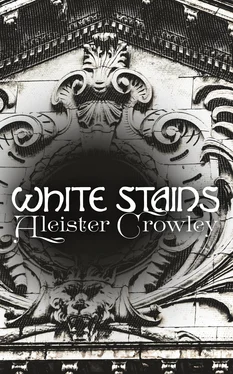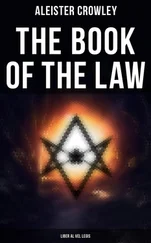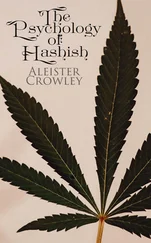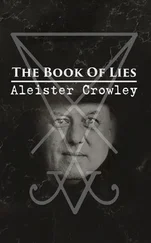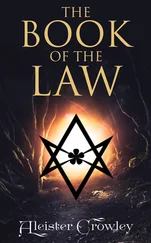Aleister Crowley
e-artnow, 2021
Contact: info@e-artnow.org
EAN 4064066499747
Preface
Dedicace
Prefatory
A Fragment
The Rainbow
With a Copy of 'Poems and Ballads'
Ad Lydiam, Ut Secum a Marito Fugeret
Contra Conjugium T.B.B.
A Ballad of Choosing
Envoi
A Jealous Lover
Ballade De La Jolie Marion
Envoi
At Stockholm
Mathilde
Yet Time to Turn
All Night
Ode to Venus Callipgye
Chorus
Chorus
Volupte
Rondels
Ad Lucium
A Paean in the Springtide
To J. L. D.
A Ballad of Passive Paederasty
Envoi
To A.D.
At Kiel
Suggested Additional Stanzas For 'A Ballad of Burdens'
The Blood-Lotus
To My First-Born
Chant Au Saint-Esprit
Victory
Sleeping in Carthage
With Dog and Dame
Ερμαφροδιτον ‘Οναρ
'Erebus'
La Juive
Necrophilia
Αβυσμος
Table of Contents
In the fevered days and nights under the Empire that perished in the struggle of 1870, that whirling tumult of pleasure, scheming, success, and despair, the minds of men had a trying ordeal to pass through. In Zola's 'La Curee' we see how such ordinary and natural characters as those of Saccard, Maxime, and the incestuous heroine, were twisted and distorted from their normal sanity, and sent whirling into the jaws of a hell far more effrayant than the mere cheap and nasty brimstone Sheol which is a Shibboleth for the dissenter, and with which all classes of religious humbug, from the Pope to the Salvation ranter, from the Mormon and the Jesuit to that mongrel mixture of the worst features of both, the Plymouth Brother, have scared their illiterate, since hypocrisy was born, with Abel, and spiritual tyranny, with Jehovah! Society, in the long run, is eminently sane and practical; under the Second Empire it ran mad. If these things are done in the green tree of Society, what shall be done in the dry tree of Bohemianism? Art always has a suspicion to fight against; always some poor mad Max Nordau is handy to call everything outside the kitchen the asylum. Here, however, there is a substratum of truth. Consider the intolerable long roll of names, all tainted with glorius madness. Baudelaire the diabolist, debauchee of sadism, whose dreams are nightmares, and whose waking hours delirium; Rollinat the necrophile, the poet of phthisis, the anxiomaniac; Peladan, the high priest -- of nonsense; Mendes, frivolous and scoffing sensualist; besides a host of others, most alike in this, that, below the cloak of madness and depravity, the true heart of genius burns. No more terrible period than this is to be found in literature; so many great minds, of which hardly one comes to fruition; such seeds of genius, such a harvest of -- whirlwind! Even a barren waste of sea is less saddening than one strewn with wreckage.
In England such wild song found few followers of any worth or melody. Swinburne stands on his solitary pedestal above the vulgar crowds of priapistic plagiarists; he alone caught the fierst frenzy of Baudelaire's brandied shrieks, and his First Series of Poems and Ballads was the legitimate echo of that not fierier note. But English Art as a whole was unmoved, at any rate not stirred to any depth, by this wave of debauchery. The great thinkers maintained the even keel, and the windy waters lay nor for their frailer barks to cross. There is one exception of note, till this day unsuspected, in the person of George Archibald Bishop. In a corner of Paris this young poet (for in his nature the flower of poesy did spring, did even take root and give some promise of a brighter bloom, till stricken and blasted in latter years by the lightning of his own sins) was steadily writing day after day, night after night, often working forty hours at a time, work which he destined to entrance the world. All England should ring with his praises; bye-and-bye the whole world should know his name. Of these works none of the longer and more ambitious remains. How they were lost, and how those fragments we possess were saved, is best told by relating the romantic and almost incredible story of his life.
The known facts of this life are few, vague, and unsatisfactory; the more definite statements lack corroboration, and almost the only source at the disposal of the biographer is the letters of Mathilde Doriac to Mdme J. S., who has kindly placed her portfolio at my service. A letter dated Oct.
15th, 1866 indicates that our author was born on the 23rd of that month. The father and mother of George were, at least on the surface, of an extraordinary religious turn of mind. Mathilde's version of the story, which has it's source in our friend himself, agrees almost word for word with a letter of the Rev.
Edw. Turle to Mrs. Cope, recommending the child to her care. The substance of the story is as follows.
The parents of George carried their religious ideas to the point of never consummating their marriage! This arrangement does not seem to have been greatly appreciated by the wife at least; one fine morning she was found to be enceinte. The foolish father never thought of the hypothesis which commends itself most readily to a man of the world, not to say a man of science, and adopted that of a second Messiah! He took the utmost pains to conceal the birth of the child, treated everybody who came to the house as an emissary of Herod, and finally made up his mind to flee into Egypt! Like most religious maniacs, he never had an idea of his own, but distorted the beautiful and edifying events of the Bible into insane and ridiculous ones, which he proceeded to plagiarize.
On the voyage out the virgin mother became enamoured, as was her wont, of the nearest male, in this case a fellow-traveller.
He, being well able to support her in the luxury which she desired, easily persuaded her to leave the boat with him by stealth. A small sailing vessel conveyed them to Malta, where they disappeared. The only trace left in the books of earth records that this fascinating character was accused, four years later, in Vienna, of poisoning her paramour, but thanks to the wealth and influence of her new lover, she escaped.
The legal father, left by himself with a squalling child to amuse, to appease in his tantrums, and to bring up in the nurture and admonition of the Lord, was not a little perplexed by the sudden disappearance of his wife. At first he supposed that she had been translated, but, finding that she had not left the traditional mantle behind her, he abandoned this supposition in favour of a quite different, and indeed a more plausible one. He now believed her to be the scarlet woman in the Apocalypse, with variations. On arrival in Egypt he hired an old native nurse, and sailed for Odessa. Once in Russia he could find Gog and Magog, and present to them the child as Antichrist. For he was now pursuaded that he himself was the First Beast, and would ask the sceptic to count his seven heads and ten horns. The heads, however, rarely totted up accurately!
At this point the accounts of Mr. Turtle and Mathilde diverge slightly. The cleric affirms that he was induced by a Tartar lady, of an honourable and ancient profession, to accompany her to Thibet 'to be initiated into the mysteries'. He was, of course, robbed and murdered with due punctuality, in the town of Kiev. Mathilde's story is that he travelled to Kiev on the original quest, and died of typhoid or cholera. In any case, he died at Kiev in 1839. This fixes the date of the child's birth at 1837. His faithful nurse conveyed him safely to England, where his relatives provided for his maintenance and education.
With the close of this romantic chapter in his early history we lose all reliable traces for some years. One flash alone illumines the darkness of his boyhood; in 1853, after being prepared for confirmation, he cried out in full assembly, instead of kneeling to receive the blessing of the officiating bishop, 'I renounce for ever this idolatrous church'; and was quietly removed.
Читать дальше
